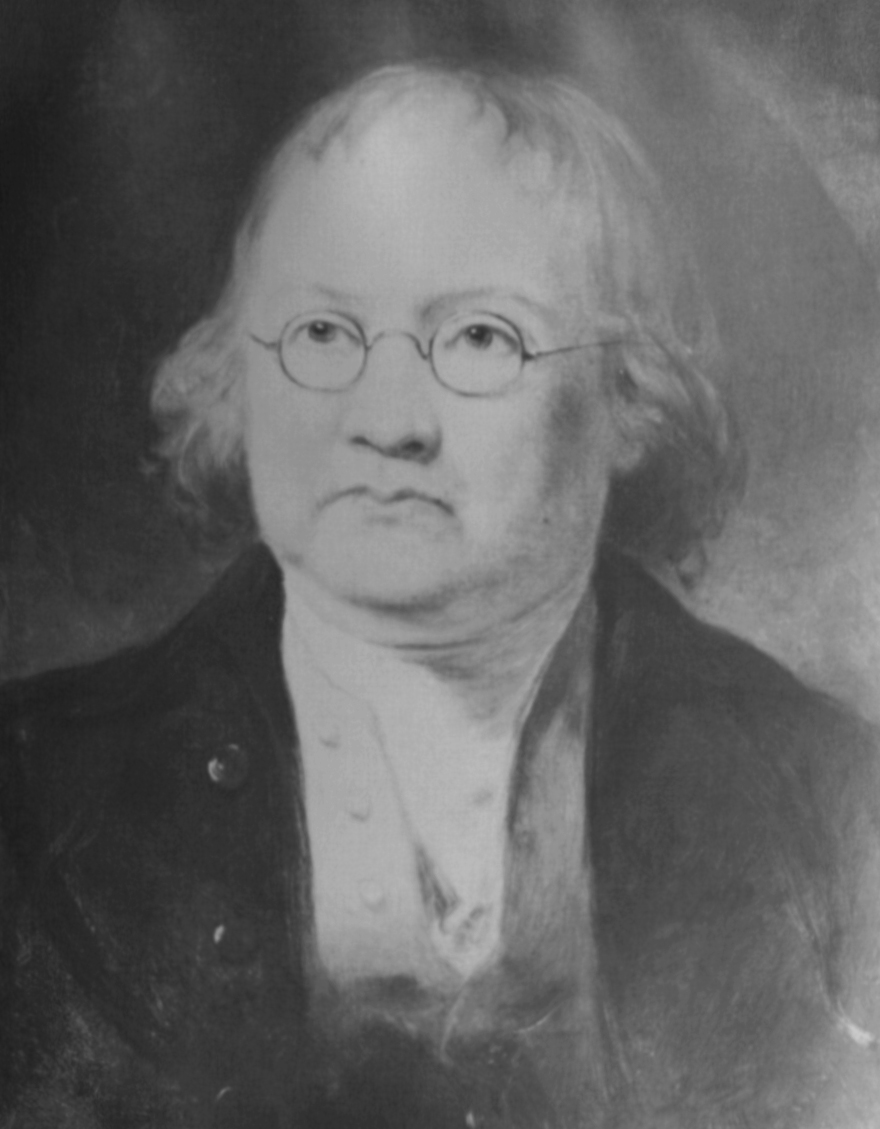There were only two, as Rhode Island was a small colony.
The first:
Stephen Hopkins
(That's Brown University in the background.)

 Stephen Hopkins was a self made man. He was self educated, made his own way in politics and studied various practical trades. He was born in Rhode Island, Scituate, then part of Providence. In 1931 Scituate separated from Providence and Hopkins became very involved holding various local offices, eventually becoming Chief Justice of the Providence County Court of Common Pleas. He served in Rhode Island's Colonial Assembly for 20 years (the first time) and again for five years. He attended the Albany Congress in 1754 where he was first introduced to Benjamin Franklin's ideas for uniting the colonies. He spoke out against the British years before the "Revolutionary Spirit" became strong. He published a pamphlet in 1764 titled "The Rights of the Colonies Examined." He spoke against the British, particulary about taxation. This established his idetity as a revolutionary. He also freed his slaves at this time.
Stephen Hopkins was a self made man. He was self educated, made his own way in politics and studied various practical trades. He was born in Rhode Island, Scituate, then part of Providence. In 1931 Scituate separated from Providence and Hopkins became very involved holding various local offices, eventually becoming Chief Justice of the Providence County Court of Common Pleas. He served in Rhode Island's Colonial Assembly for 20 years (the first time) and again for five years. He attended the Albany Congress in 1754 where he was first introduced to Benjamin Franklin's ideas for uniting the colonies. He spoke out against the British years before the "Revolutionary Spirit" became strong. He published a pamphlet in 1764 titled "The Rights of the Colonies Examined." He spoke against the British, particulary about taxation. This established his idetity as a revolutionary. He also freed his slaves at this time.He attended the contitental congress from 1774-1776. This man accomplished a lot. I always admire those who are self educated. It takes dedication and drive. Admirable? What if I tell you his signature is shaky because he suffered from Cerebral Palsy. Does that make all the more impressive? I think so. Maybe I shouldn't complain about my limitations.
He was married and had 7 children, 5 of whom lived to adulthood. Through his career he helped found a subscription library, an early version of what our public library is today, and he was instrumental in the founding of the College in the English Colony of Rhode Island and Providence Plantations, which later became Brown University. His home is now a US National Hisotric Landmark. He died in 1785 at the age of 78.
The other man:
William Ellery
He was a lawyer and a Judge.

 Wikipedia puts it succinctly:
Wikipedia puts it succinctly:The son of William Ellery, William Ellery was born in Newport. He worked first as a merchant, next as a customs collector, and lastly as Clerk of the Rhode Island General Assembly. Ellery started the practice of law in 1770 and was active in the Rhode Island Sons of Liberty. After Samuel Ward's death in 1776, Ellery replaced Ward in the Continental Congress. Ellery was among the fifty-six signers of the Declaration of Independence in 1776. He became judge of the Supreme Court of Rhode Island and by 1785 he had become an abolitionist. He was the first customs collector of the port of Newport under the Constitution, serving there until his death. Ellery was buried in Common Burying Ground and Island Cemetery in Newport.
He attended Harvard College. The US history website says he graduated at age 15. He also took part in the founding of Brown University. He died in 1820. Wikipedia lists descendents, so he was obiviousl married and had children. One of his descendents is Kyra Sedgwick. Hmm. I wonder if she shows his same aptitude for brilliance.
No comments:
Post a Comment